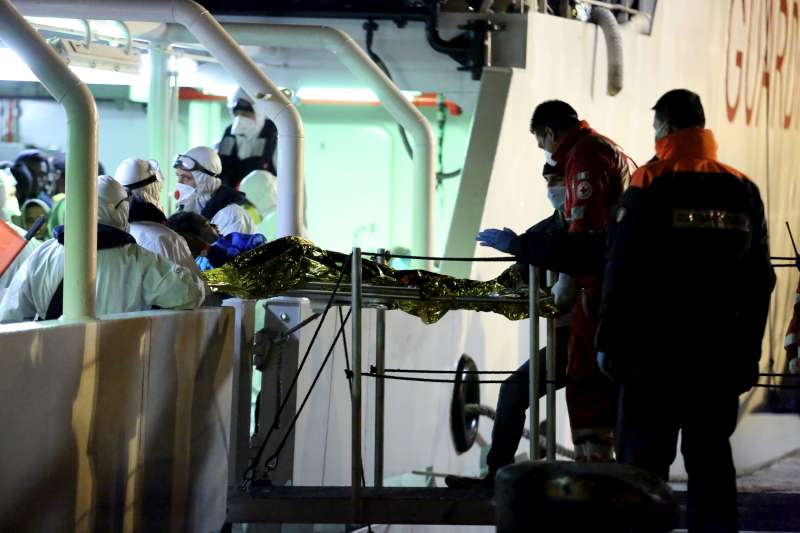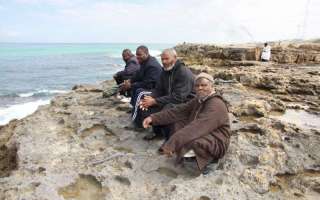
Medics carry a young man on a stretcher off the Italian Coastguard vessel Gregoretti when it reached Palermo in Sicily earlier this week after rescuing people from the Mediterranean. © UNHCR/F.Malavolta
GENEVA, April 15 (UNHCR) – UN High Commissioner for Refugees António Guterres on Wednesday expressed shock at news from the Mediterranean that hundreds of people were missing after their boat sank and called anew for urgent action to prevent such tragedies in the future.
The latest incident involves the capsizing of a double-deck boat on Monday in waters about 120 kilometres south of Italy’s Lampedusa Island. So far, 142 people have been rescued and eight bodies recovered. But survivors said some 400 others were aboard and are feared lost.
Guterres, who is on mission in Lebanon, called afresh on governments across the region to prioritize the saving of lives, including by urgently expanding and upgrading search and rescue capacities.
“I was deeply shocked when hearing the news that another boat, an overcrowded boat capsized in the Mediterranean and where 400 people died. This only demonstrates how important it is to have a robust rescue-at-sea mechanism, in the central Mediterranean,” he said.
“Unfortunately Mare Nostrum was never replaced by an equivalent capacity to rescue people, and at the same time the legal avenues for those who need protection to be able to come Europe,” the High Commissioner added, referring to a major search and rescue effort on the Mediterranean. This was established by Italy following the Lampedusa disasters of October 2013 in which hundreds of lives were lost in two boat incidents. The operation was ended in December 2014.
The Mediterranean has emerged in recent years as the most dangerous of the world’s four major sea routes in use by refugees and migrants. The other three main routes involve the Bahamas and Caribbean, the Red Sea and Gulf of Aden, and the Bay of Bengal. Last year, some 219,000 refugees and migrants crossed the Mediterranean, and at least 3,500 lives were lost.
So far this year, some 31,500 people are known to have made crossings to Italy and Greece – the first and second largest countries of arrival respectively. And numbers have recently been picking up further as sea and weather conditions improve.
According to the Italian Coastguard more than 8,500 people have been rescued from several dozen boats and rubber dinghies since last Friday. If the 400 deaths are confirmed from the latest incident the death toll so far this year will have reached 900.
High Commissioner Guterres in Beirut said: “I am here in Lebanon and we know that Syrians are more and more risking their lives to have access to European territories. But for all those in need of protection it is very important to increase the number of resettlement opportunities, humanitarian admission opportunities, to have a more flexible visa policy, to have enhanced family reunification programmes, and again I repeat to have an effective mechanism to rescue people at sea in the central Mediterranean.”
UNHCR has been advocating for a comprehensive and urgent response from the European Union (EU) and member states to deal with the challenges posed by the thousands of refugees and migrants who risk their lives trying to reach Europe.
The refugee agency has shared specific proposals, including establishing a European robust search and rescue operation, a possible EU scheme to compensate shipping companies involved in rescuing people at sea, increasing credible legal alternatives to dangerous voyages – such as resettlement, humanitarian visas and other innovative solutions – and a pilot relocation programme for Syrians refugees arriving in Italy and Greece.


